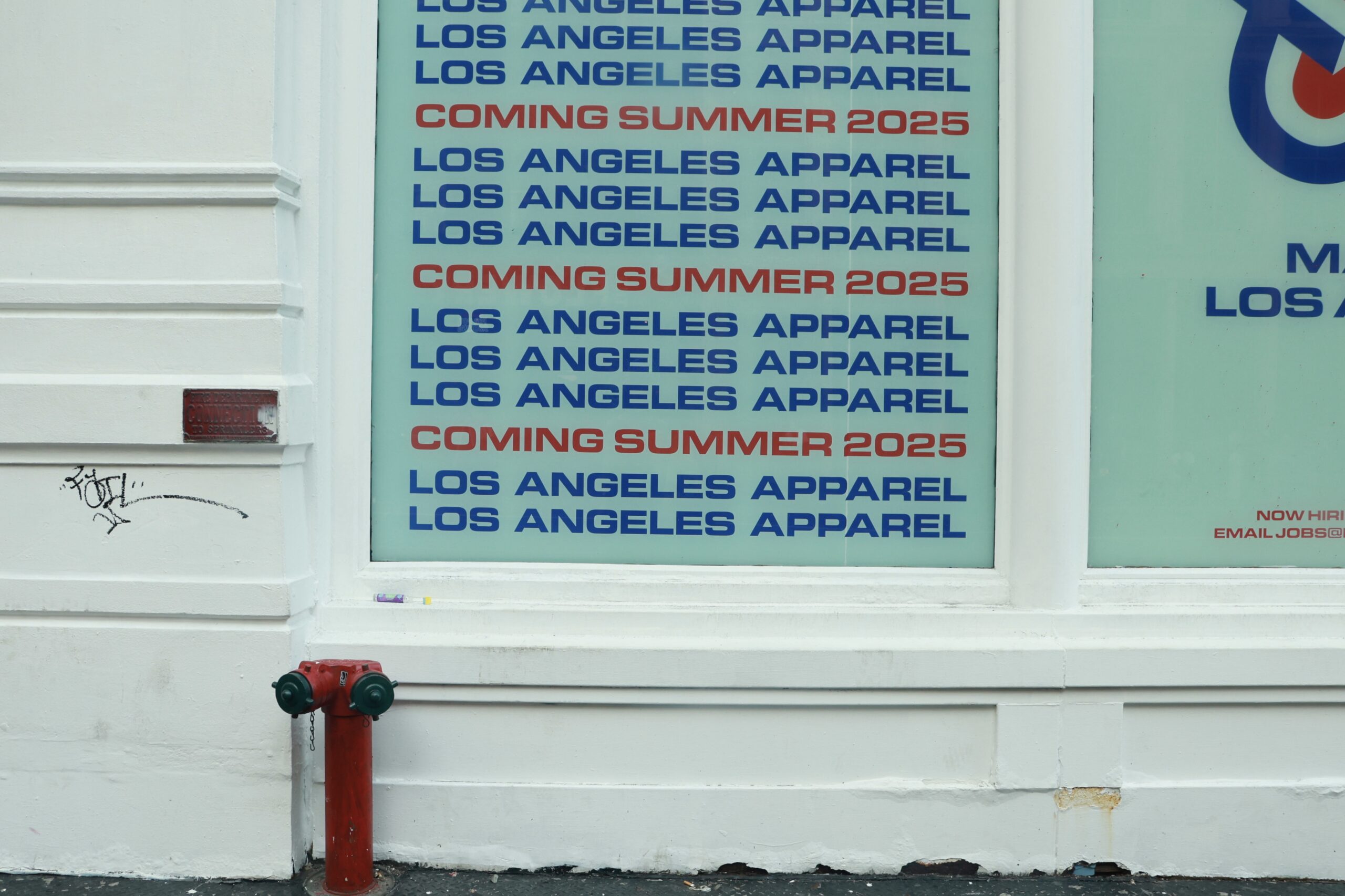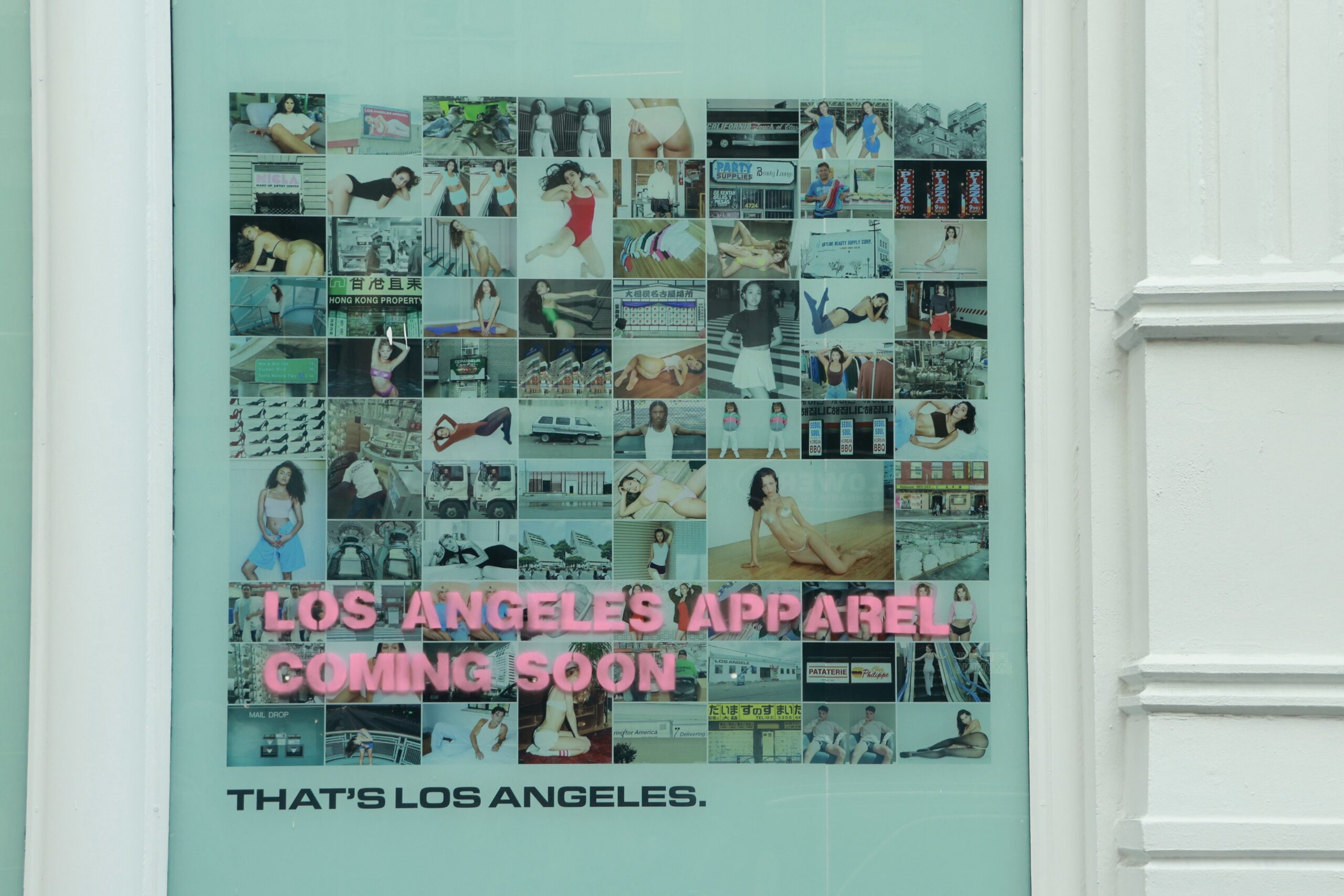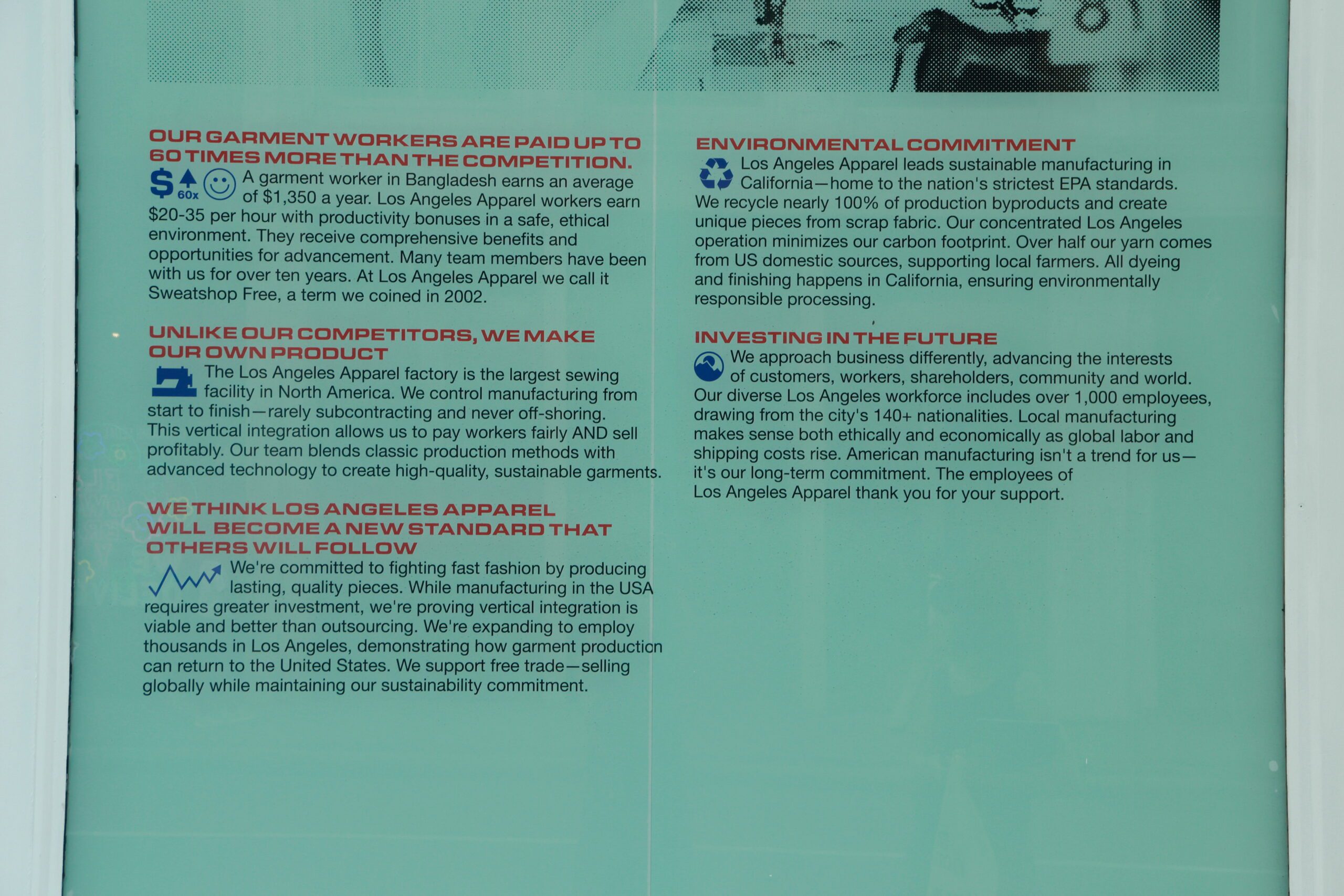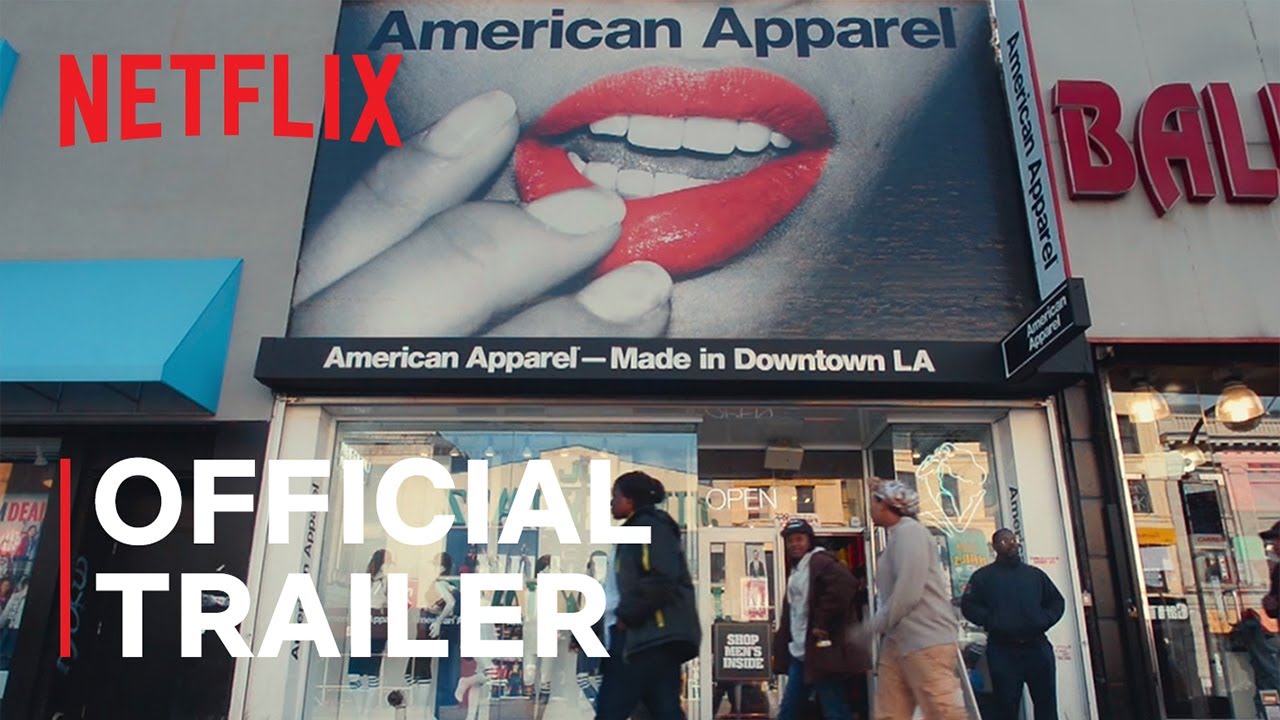
All New American Apparel- SoHo, NY Storefront
After watching Netflix’s “Trainwreck: The Cult of American Apparel”, it was difficult to imagine that the brilliant global empire of American Apparel was deceased. Founded in 1997 by Dov Charney, the company was up for sale in 2017 after it was revealed that their ‘Made in USA & Sweatshop Free’ positioning was fraudulent. However, posted on the streets of Lower Manhattan, a familiar name resurfaces—Los Angeles Apparel, announcing a SoHo pop-up storefront this summer 2025. What appears to be a fresh face in sustainable loungewear is, in fact, a rebranded revival of the American Apparel company— a name recognized by any teen ten years ago for their legacy of sleazy, logo-free accessible basics.
Los Angeles Apparel’s familiar marketing is a resurrected strategy that was originally introduced by American Apparel. Fueled by controversy and shock-factor appeal, the rise of anti-airbrushed sensuality began just two decades ago. American Apparel, known for casting everyday people as models, offered a brand of sex appeal that felt authentic and relatable. Its iconic ad campaigns featured minimal copy, bold typography, and little to no retouching. The imagery was messy, sensual, and unapologetically raw—designed for billboards and storefronts across major cities. Each ad mirrored the nature of the featured model, often posed provocatively to effortlessly sell the new piece of the season. The unique branding of American Apparel was exciting and embodied the spirit of Los Angeles’ sexual revolution of the 2000s—edgy, unfiltered, and irresistibly bold.
Few fashion brands have had the cultural impact American Apparel achieved—everyone wore their clothes. From high school students to Beyoncé, it seemed anyone and everyone wanted to be part of the brand. At the time, American Apparel embodied a celebration of independence and a wild, profound party culture. Authenticity played a major role in its success that was relevant in every marketing opportunity. The clothes were affordable, accessible, and consistently well-stocked. Even the employees were notably attractive—something that felt intentional. In a move as controversial as its marketing, the company’s founder was said to encourage shoplifting— offering job applications to those caught attempting to steal. Beyond branding, the production process was unusually transparent. Every piece was made in the company’s Los Angeles warehouse, and interviews or behind-the-scenes footage often carried the same raw, high energy that made people want to be part of the team. Garment workers were reported to be paid well and anyone working under Dov seemed fabulous. He taught specific ethics and gifted his employees with new phones, free clothes, and even a peculiar novel—a detail highlighted in the documentary, which suggested the gifted book revealed Dov’s twisted, more extreme motivations. It helped that every store had a tight relationship with him due to his frequent, direct calls and text messages to any employee at any time. Being a retail worker at American Apparel meant you were a part of something huge. With 281 stores reaching into global departments, the California-based retail empire seemed indestructible.

To many customers, American Apparel wasn’t just retail—it was a lifestyle. The idea of American-made basics, on-trend and affordable, felt almost too good to be true. Eventually, cracks began to show. It became clear that the trendy, accessible pieces weren’t nearly as sustainable as they had seemed. American Apparel’s infamous founder, Dov Charney, has resurfaced in mention through Netflix’s documentary that exposes the brand’s rise and fall due to his involvement in sexual, verbal, and workplace abuse. What looked like a successful brand that promised ethically made products that embodied youthful freedoms turned out to be a cult-like fandom riddled with breached labor laws. Complaints about labor conditions were dismissed; however, $3 million in fines for sexual harassment and defamation gained the public’s attention. Ironically, the hyper-sexual nature of American Apparel’s brand image stemmed from a darker place behind the scenes. Countless female models and workers were sexually exploited and taken advantage of under Dov’s control. His character was once entertaining and even adored among his employees—until it wasn’t. A dark side of Dov was apparent to everyone, leading to blackmailing and abuse used to question loyalty. Merely dismissing his behavior, people under Dov were frightened, some traumatized from his threats. It wasn’t until legal action was taken against Dov.
In 2017, American Apparel filed for bankruptcy for a second time. Dov was forced to step down and handed over the company’s remains to Gildan Activewear, a public loungewear company. In their Los Angeles warehouse, American Apparel continued as a storefront that had lost all cultural value. Dov then found work with Kanye’s Yeezy, continuing the controversial roles of his past. Today, Dov posts his views of Los Angeles on his personal Instagram to maintain his relevance of LA’s under ground tranquility. With his motto of #ThatsLosAngeles, he pursues an urban allure that transfers into his second chance of an all-new American Apparel— Los Angeles Apparel. Knowing that the company’s entire DNA was birthed from his original product, Dov’s true career goals are unknown. Los Angeles Apparel gained growth without many of their customer base being aware of the history of American Apparel. Although his iconic marketing approach appears successful, there’s no telling if Dov will mirror his past demeanor and labor practices.
Patiently awaiting a crowd in SoHo, Los Angeles Apparel’s storefront window features a modern version of a typical Dov Charney campaign, announcing its grand opening. Cheeky posters promoting the new location are layered over graffiti on Broadway, evoking the brand’s urban, historic edge. American Apparel once promised a price tag too good to be true while claiming their workers received a comfortable wage. In the image, shot by Lucy Li, it appears Dov’s Los Angeles Apparel claims, “At Los Angeles Apparel we call it Sweatshop Free, a term we coined in 2002.” While many of its customer base may not be aware of the origins of Dov’s quiet rebrand, American Apparel’s identity is profoundly present—just under a new name. As Los Angeles Apparel shows clear signs of growth and Dov inches back into relevance within retail, a critical question remains: can the company actually practice what they preach, or were ethical labor practices not a part of the rebrand?




